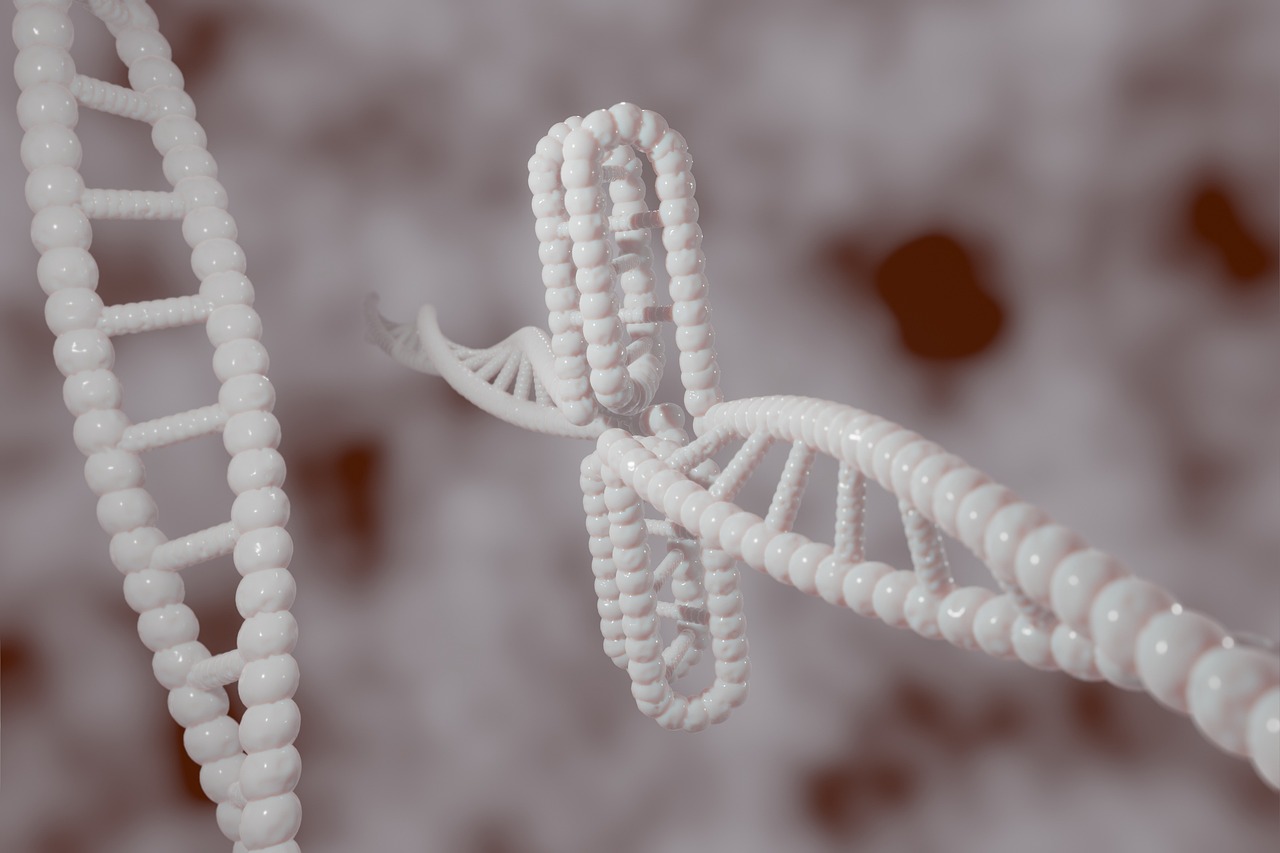Philosophy of Science in Genetics – An Overview
The intersection of philosophy and genetics is a fascinating realm that invites us to ponder profound questions about life, identity, and the very essence of our being. As we delve into the philosophy of science in genetics, we uncover the intricate tapestry of ideas that shape our understanding of heredity and the transmission of traits across generations. This exploration is not merely academic; it resonates with real-world implications that affect our daily lives, our health, and our societal structures.
At its core, genetics seeks to unravel the mysteries of our biological makeup. It provides us with the tools to understand how traits are passed down from parents to offspring, how diseases can be inherited, and even how we might manipulate these processes through modern technologies. But what does it mean to possess this knowledge? Is it a gift, a burden, or perhaps a double-edged sword? As we navigate through these questions, we find ourselves at the crossroads of scientific inquiry and philosophical reflection.
One of the most compelling aspects of this discourse is the way genetic research challenges our notions of identity. Who are we if our genetic code can be altered or if our ancestry can be traced back to a single common ancestor? These inquiries compel us to rethink our understanding of self and community, raising questions about the implications of genetic testing and the potential for genetic discrimination. The reality is that genetics does not just inform us about biological traits; it also influences our social dynamics and personal relationships.
Furthermore, the rapid advancement of gene editing technologies, such as CRISPR, has opened new avenues for exploration but also raised significant ethical dilemmas. Should we edit the genes of future generations? What are the risks of unintended consequences? As we consider these technologies, we must also reflect on the philosophical underpinnings that guide our ethical frameworks. How do we balance the potential benefits against the moral implications of playing with the very fabric of life?
In this article, we will embark on a journey through the philosophy of science in genetics, examining key concepts, ethical considerations, and the implications of genetic research on our understanding of life and identity. By scrutinizing the nature of genetic knowledge, the ethical implications of genetic research, and the philosophical theories that inform our understanding of genetics, we aim to provide a comprehensive overview that not only informs but also provokes thought and discussion.
This section discusses what constitutes genetic knowledge, its origins, and how it shapes our understanding of heredity and the transmission of traits across generations.
An exploration of the ethical dilemmas arising from genetic research, including issues of consent, privacy, and the potential for genetic discrimination in society.
This subsection delves into the ethical considerations surrounding gene editing technologies like CRISPR, including their potential benefits and risks to humanity and biodiversity.
A discussion on the existing regulatory frameworks governing gene editing, highlighting the need for robust policies to ensure ethical compliance in scientific practices.
This section examines how public perception of gene editing technologies influences their acceptance and integration into society, including fears and misconceptions.
An analysis of how genetics influences personal and social identity, including the implications of genetic testing for understanding ancestry and heritage.
This section outlines various philosophical theories that inform our understanding of genetics, including determinism, reductionism, and the nature of biological explanations.
A critical examination of the debate between genetic determinism and the concept of free will, exploring how genetics influences behavior and personal choices.
This subsection discusses the reductionist approach in genetics, questioning whether complex biological phenomena can be fully understood by studying individual genes.
- What is the philosophy of science in genetics? It explores the fundamental questions about the nature of genetic knowledge and its implications on identity and ethics.
- How does genetics influence identity? Genetics shapes our understanding of personal and social identity, affecting how we perceive ourselves and others.
- What are the ethical concerns surrounding gene editing? Ethical concerns include consent, privacy, and the potential for genetic discrimination.
- What is CRISPR? CRISPR is a powerful gene-editing technology that allows for precise alterations to DNA.
- How does public perception affect genetic research? Public perception can significantly influence the acceptance and integration of genetic technologies into society.

The Nature of Genetic Knowledge
When we talk about genetic knowledge, we're diving into a fascinating realm that shapes our understanding of heredity and the intricate tapestry of life itself. At its core, genetic knowledge encompasses the information encoded within our DNA, which dictates everything from physical traits like eye color to complex predispositions for certain diseases. But have you ever stopped to think about where this knowledge originates? It’s not just a product of modern science; it’s a culmination of centuries of inquiry into the very essence of what makes us human.
The journey of genetic knowledge began long before the advent of advanced technologies. Ancient civilizations had their own rudimentary understanding of inheritance, often observing how traits were passed from parents to offspring. Fast forward to the 19th century, and we encounter the groundbreaking work of Gregor Mendel, whose experiments with pea plants laid the groundwork for modern genetics. Mendel's principles of inheritance opened the door to understanding how traits are transmitted across generations, yet even he couldn't have imagined the profound implications that modern genetic research would unveil.
Today, genetic knowledge is not just about understanding heredity; it's a multi-faceted field that includes concepts like genotype, phenotype, and the intricate dance of genes interacting with environmental factors. The genotype refers to the genetic makeup of an individual, while the phenotype is the observable expression of those genes. This distinction is crucial because it highlights the complexity of how our genetics manifest in the real world. Are we merely products of our genes, or do our environments play a significant role in shaping who we are? This question is at the heart of ongoing debates in both science and philosophy.
Moreover, as we delve deeper into the realm of genetic knowledge, we must consider the impact of technological advancements. The development of tools like DNA sequencing and genome editing has revolutionized our understanding of genetics, enabling us to pinpoint specific genes responsible for various traits and diseases. However, with great power comes great responsibility. The ability to manipulate genetic material raises profound questions about the ethics of such actions. Should we edit the genes of future generations? What are the long-term consequences of such interventions? These questions reflect the need for a careful examination of not just the knowledge we gain, but how we choose to apply it.
As we explore the nature of genetic knowledge, it’s essential to recognize that this field is not static; it’s ever-evolving. With each discovery, we gain a clearer picture of the complexities of life, but we also uncover new ethical dilemmas and philosophical questions. The interplay between genetics, identity, and morality is one that demands our attention, as it challenges us to consider what it truly means to be human in an age where our very essence can be altered.
To summarize, genetic knowledge is a foundational aspect of our understanding of life, steeped in history and continually shaped by modern science. It invites us to ponder profound questions about our identities and the ethical implications of our growing capabilities. As we move forward, it’s vital to engage in thoughtful discourse about how we harness this knowledge for the betterment of society, ensuring that we respect both the science and the humanity behind it.

Ethical Implications of Genetic Research
When we dive into the world of genetics, we quickly find ourselves grappling with a myriad of ethical implications. Genetic research holds immense potential to revolutionize medicine, agriculture, and our understanding of life itself. However, with great power comes great responsibility. As scientists unlock the secrets of our DNA, they face complex dilemmas that challenge our moral compass.
One of the most pressing issues is the question of informed consent. Imagine a world where your genetic information could be accessed without your knowledge or approval. This concern raises eyebrows, especially when considering how genetic data can be misused. For instance, insurance companies might deny coverage based on genetic predispositions to certain diseases, leading to a new form of genetic discrimination. This raises the question: should individuals have full control over their genetic information?
Moreover, the advent of gene editing technologies, such as CRISPR, has sparked a heated debate about the ethical boundaries of altering genetic material. While the potential to eliminate genetic disorders is enticing, we must ponder the consequences of playing God. What happens when we start editing genes for non-medical reasons, like enhancing physical traits or intelligence? The line between treatment and enhancement becomes increasingly blurred, inviting a discussion about the essence of what it means to be human.
Gene editing technologies have opened up a Pandora's box of possibilities and ethical considerations. On one hand, the ability to edit genes could lead to groundbreaking advancements in treating diseases. On the other hand, the risks associated with such technologies cannot be overlooked. For instance, unintended consequences could arise, leading to unforeseen health issues or ecological imbalances. The responsibility lies with scientists and policymakers to navigate these waters carefully.
To address these ethical dilemmas, robust regulatory frameworks are essential. Governments and international bodies must establish guidelines that govern genetic research and gene editing practices. These regulations should ensure that ethical compliance is upheld, protecting individuals from potential abuses. Without a solid framework, the scientific community risks operating in a moral gray area, where the implications of their work could have lasting effects on society.
Public perception plays a crucial role in the acceptance of genetic research and technologies. Many people harbor fears and misconceptions about gene editing, often fueled by sensationalized media stories. To foster a better understanding, scientists and ethicists must engage with the public, explaining the science behind genetic research and addressing concerns. Only through open dialogue can we bridge the gap between scientific advancement and societal acceptance.
In conclusion, the ethical implications of genetic research are vast and complex. As we stand on the brink of a genetic revolution, it is imperative that we approach these challenges with caution and foresight. By prioritizing informed consent, establishing regulatory frameworks, and engaging with the public, we can navigate the ethical landscape of genetics responsibly.
- What is informed consent in genetic research? Informed consent refers to the process of obtaining permission from individuals before using their genetic information, ensuring they understand the implications and potential risks involved.
- What are the risks of genetic discrimination? Genetic discrimination occurs when individuals are treated unfairly based on their genetic information, such as being denied insurance coverage or employment opportunities due to genetic predispositions.
- How does gene editing work? Gene editing technologies, like CRISPR, allow scientists to make precise alterations to an organism's DNA, potentially correcting genetic disorders or enhancing certain traits.
- Why are regulatory frameworks important? Regulatory frameworks provide guidelines for ethical compliance in genetic research, protecting individuals from potential abuses and ensuring responsible scientific practices.

Gene Editing Technologies
Gene editing technologies have revolutionized the field of genetics, offering unprecedented opportunities to alter the genetic makeup of organisms. One of the most talked-about advancements in this arena is CRISPR-Cas9, a powerful tool that allows scientists to make precise changes to DNA. Imagine having the ability to edit a book, correcting typos or even changing entire paragraphs with ease. That's what CRISPR does for our genetic code. It enables researchers to target specific genes, making modifications that can lead to significant improvements in health, agriculture, and beyond.
However, with great power comes great responsibility. The ethical implications of gene editing are vast and complex. For instance, while the potential to eliminate genetic diseases is incredibly appealing, it raises questions about the limits of human intervention in nature. Are we playing God by altering the very fabric of life? Furthermore, the prospect of creating "designer babies"—children with selected traits—sparks a heated debate about the moral boundaries of genetic engineering. This leads to concerns about genetic inequality, where only the wealthy could afford enhancements, potentially widening the gap between different socio-economic classes.
Moreover, the risks associated with gene editing technologies cannot be overlooked. While CRISPR is celebrated for its accuracy, unintended consequences—often referred to as off-target effects—can occur. These are instances where the editing tool may inadvertently modify genes other than the intended target, leading to unforeseen health issues. The implications of such mistakes can be profound, not just for individuals but for entire ecosystems if applied to wild species.
To navigate these challenges, a robust regulatory framework is essential. Currently, various countries have different regulations regarding gene editing, creating a patchwork of guidelines that can be confusing and inconsistent. For example, while some nations permit gene editing for agricultural purposes, others strictly regulate its use in humans. The need for a unified approach is critical to ensure ethical compliance and safeguard against misuse.
Public perception also plays a crucial role in the acceptance of gene editing technologies. Many people harbor fears about the unknowns of genetic manipulation, often fueled by sensational media coverage. Misconceptions about gene editing can lead to resistance against potentially life-saving therapies. Therefore, it is vital to engage in open dialogues with the public to educate and demystify these technologies. Building trust through transparency and clear communication can help alleviate fears and foster a more informed society.
In summary, gene editing technologies hold incredible promise for advancing our understanding and control of genetics. However, as we stand on the brink of this new frontier, we must tread carefully. Balancing innovation with ethical considerations is crucial to ensure that the benefits of gene editing are realized without compromising our moral responsibilities.
- What is CRISPR-Cas9? CRISPR-Cas9 is a gene editing technology that allows scientists to modify DNA with high precision.
- What are the ethical concerns surrounding gene editing? Ethical concerns include the potential for genetic discrimination, the creation of designer babies, and unintended consequences of gene modifications.
- How does public perception affect gene editing technologies? Public fears and misconceptions can hinder the acceptance of gene editing technologies, making education and transparency essential.
- What are the risks associated with gene editing? Risks include off-target effects, where unintended genetic changes may occur, leading to unforeseen health issues.

Regulatory Frameworks
As the field of genetics continues to advance at a breathtaking pace, the need for robust regulatory frameworks becomes increasingly critical. These frameworks serve as the backbone for ensuring that genetic research and applications are conducted ethically and responsibly. Without them, we risk not only the integrity of scientific inquiry but also the potential for serious societal repercussions. So, what exactly do these frameworks entail, and why are they so vital?
At their core, regulatory frameworks are designed to establish guidelines and standards that govern genetic research and its applications. They encompass a wide range of considerations, including safety, efficacy, and ethical implications. For instance, when it comes to gene editing technologies like CRISPR, these frameworks help to mitigate risks associated with unintended consequences, such as off-target effects that could lead to unforeseen health issues.
Moreover, regulatory frameworks often address issues of consent and privacy. As genetic data becomes more accessible, the question of who has the right to access this information and how it can be used becomes paramount. Regulations must ensure that individuals' genetic data is protected from misuse, particularly in contexts like employment or insurance, where genetic discrimination could arise. To illustrate this, consider the following table that outlines key components of regulatory frameworks:
| Component | Description |
|---|---|
| Informed Consent | Ensures that participants understand the implications of genetic research and agree to participate voluntarily. |
| Data Privacy | Protects individuals' genetic information from unauthorized access and potential misuse. |
| Risk Assessment | Evaluates the potential risks associated with genetic research and gene editing technologies. |
| Oversight Bodies | Establishes governmental or independent organizations to monitor compliance with ethical standards. |
Additionally, the international landscape of genetic research is diverse, with different countries implementing varying regulatory measures. This disparity can lead to ethical dilemmas, especially when research crosses borders. For example, while one country may permit certain gene editing practices, another may have stringent prohibitions in place. This can create a scenario where scientists seek out more lenient regulations, potentially compromising ethical standards.
In light of these complexities, it is essential for regulatory frameworks to be adaptable and responsive to the rapid advancements in genetic technologies. Policymakers must engage with scientists, ethicists, and the public to create regulations that not only protect individuals but also foster innovation. This collaborative approach can help ensure that the benefits of genetic research are realized without compromising ethical integrity.
Ultimately, the establishment of comprehensive regulatory frameworks is not just about preventing harm; it’s about promoting a culture of responsibility in the scientific community. As we navigate the uncharted waters of genetic research, these frameworks will play a crucial role in shaping the future of genetics and its impact on society.
- What are regulatory frameworks in genetics?
Regulatory frameworks are guidelines and standards that govern genetic research and applications, ensuring ethical and responsible practices. - Why are regulatory frameworks important?
They help mitigate risks, protect individual privacy, and ensure informed consent, thereby maintaining the integrity of scientific inquiry. - How do different countries approach genetic regulation?
Countries may have varying regulations, leading to ethical dilemmas when research crosses borders. - What role do oversight bodies play?
Oversight bodies monitor compliance with ethical standards and ensure that genetic research adheres to established regulations.

Public Perception and Acceptance
When it comes to gene editing technologies, the buzz is palpable, yet the air is thick with uncertainty. Public perception plays a critical role in the acceptance of these groundbreaking advancements. Imagine standing at the crossroads of science and ethics, where every decision could potentially alter the fabric of life itself. The excitement surrounding innovations like CRISPR is often tempered by fears and misconceptions that can cloud rational judgment. How do we navigate this complex landscape?
One of the primary factors influencing public acceptance is the level of understanding about genetic technologies. Many individuals hold preconceived notions about gene editing that are shaped by media portrayals, scientific jargon, and even fictional narratives. For instance, the idea of "designer babies" can evoke both fascination and horror. The sensationalism often leads to a distorted view of what genetic editing entails, creating a divide between scientific communities and the general public.
Moreover, ethical concerns also weigh heavily on public sentiment. People often grapple with questions such as: What are the implications of altering human DNA? Could this lead to a new form of eugenics? How do we ensure that these technologies are used responsibly? These questions highlight a broader societal anxiety about the potential for misuse and the moral dilemmas that arise from playing 'God' with our genetic makeup.
To better understand public perception, we can look at various studies that assess attitudes towards genetic research. For instance, a recent survey revealed that:
| Technology | Support (%) | Opposition (%) |
|---|---|---|
| Gene Editing for Disease Prevention | 68 | 32 |
| Gene Editing for Cosmetic Enhancements | 25 | 75 |
| Genetic Testing for Ancestry | 80 | 20 |
This table illustrates a clear trend: while there is considerable support for gene editing aimed at preventing diseases, the idea of using these technologies for cosmetic purposes is met with significant opposition. This disparity underscores the need for transparent communication and education to bridge the gap between scientific advancements and public understanding.
Furthermore, community engagement plays a pivotal role in shaping perceptions. When scientists and ethicists actively involve the public in discussions about genetic research, it fosters a sense of ownership and responsibility. Town hall meetings, public forums, and educational campaigns can demystify the science, allowing individuals to voice their concerns and ask questions. This dialogue can transform skepticism into informed acceptance, paving the way for a more harmonious relationship between society and scientific progress.
In conclusion, the journey toward public acceptance of gene editing technologies is fraught with challenges, but it is not insurmountable. By promoting education, facilitating open discussions, and addressing ethical concerns head-on, we can create an environment where innovation is embraced, not feared. After all, the future of genetics holds tremendous promise, but it requires a collective effort to ensure that it benefits all of humanity.
- What is gene editing? Gene editing refers to the process of altering specific DNA sequences in an organism's genome, allowing for targeted modifications.
- Are there risks associated with gene editing? Yes, potential risks include unintended genetic changes, ethical concerns, and long-term effects that are not yet fully understood.
- How can the public get involved in discussions about genetic research? Individuals can participate in community forums, attend public lectures, and engage with local scientific organizations to voice their opinions and learn more.

Genetics and Identity
When we talk about , we are diving deep into a fascinating intersection where science meets our very sense of self. Have you ever wondered how much of who you are is written in your DNA? It’s a question that many of us ponder, especially in a world where genetic testing has become increasingly accessible. Our genetic makeup not only influences our physical traits but also plays a significant role in shaping our personal and social identities. Think about it: your ancestry, your health predispositions, and even some aspects of your personality can all be traced back to the genes you inherit from your parents.
Understanding our genetics can be a double-edged sword. On one hand, it offers us a window into our heritage. For instance, through genetic testing, individuals can uncover their ancestral roots, revealing connections to distant cultures and histories. This newfound knowledge can foster a sense of belonging and pride, enhancing one's identity. On the other hand, genetic information can also lead to a crisis of identity. Imagine discovering that you have a predisposition for a certain disease or that your ancestry is not what you believed it to be. Such revelations can challenge our self-perception and the narratives we construct about ourselves.
Moreover, the implications of genetic testing extend beyond personal identity. They seep into societal constructs as well. For example, the way we view race and ethnicity can be influenced by genetic information. If genetics reveals that certain traits are more prevalent in one group than another, it may lead to stereotypes or reinforce social divisions. The challenge lies in using genetic knowledge responsibly, ensuring it does not fuel discrimination or bias.
Furthermore, the rise of direct-to-consumer genetic testing services has sparked a debate about privacy and the ethical handling of genetic information. Many individuals are now eager to learn about their genetic predispositions, but what happens to that data? Who owns it, and how is it used? These questions are crucial as they touch upon our right to control our own identities and how they are perceived in society.
In essence, the relationship between genetics and identity is complex and multifaceted. It prompts us to ask vital questions about who we are and how much of our identity is determined by our genes. Are we merely products of our DNA, or do we have the power to shape our destinies? As we continue to explore this intricate web, it’s clear that genetics will play a pivotal role in defining our identities in the modern world.
- What is the role of genetics in shaping identity? Genetics plays a significant role in determining physical traits, health predispositions, and even some aspects of personality, which all contribute to one's identity.
- Can genetic testing change how we view ourselves? Yes, genetic testing can lead to new insights about ancestry and health, which may challenge or reinforce personal narratives about identity.
- What are the ethical concerns surrounding genetic information? Concerns include privacy, data ownership, and the potential for genetic discrimination based on predisposed traits.

Philosophical Theories in Genetics
The study of genetics is not just a scientific endeavor; it also invites a profound philosophical inquiry that delves into the nature of life, identity, and the essence of being human. At the heart of this exploration are several philosophical theories that shape our understanding of genetics and its implications. These theories help us grapple with questions about what it means to inherit traits, the extent to which our genes determine our fate, and how we define ourselves in relation to our genetic makeup.
One of the most significant philosophical debates in genetics revolves around determinism versus free will. Genetic determinism posits that our genes significantly dictate our behaviors, abilities, and even our destinies. This view suggests that our biological inheritance is the primary driver of who we are. On the other hand, the concept of free will argues that individuals have the capacity to make choices independent of their genetic predispositions. This raises intriguing questions: Are we merely products of our DNA, or do we have the power to shape our destinies through our decisions and actions?
To illustrate this debate, consider the following scenario: Imagine two individuals with a genetic predisposition for a particular trait, such as a talent for music. One person embraces this talent and pursues a career in music, while the other, despite having the same genetic potential, chooses a different path. This example highlights the tension between genetic influence and personal agency, prompting us to reflect on the extent to which our choices define us.
Another important philosophical theory in genetics is reductionism. This approach seeks to understand complex biological phenomena by breaking them down into their simplest components, often focusing on individual genes. While reductionism has its merits in providing clarity and precision in genetic research, it raises critical questions about whether this method can truly capture the intricate web of interactions that define living organisms. For instance, can we fully understand the experience of being human by merely studying the genes that influence our behavior? Or do we risk oversimplifying the rich tapestry of life by ignoring the environmental and social factors that also play a crucial role?
| Philosophical Theories | Key Concepts |
|---|---|
| Determinism | Genes dictate behavior and traits; limited free will. |
| Free Will | Individuals have the power to make choices beyond genetic influence. |
| Reductionism | Understanding complex systems by analyzing individual components. |
As we navigate these philosophical waters, it becomes evident that our understanding of genetics cannot be separated from the broader implications it has on our lives and society. The discourse surrounding these theories is not merely academic; it has real-world consequences, especially as genetic technologies advance and become more integrated into our daily lives. For instance, genetic testing can inform us about our ancestry, health risks, and even personality traits, but it also raises ethical questions about how this information is used and who has access to it.
In conclusion, the philosophical theories surrounding genetics challenge us to reflect on our identities and the nature of human existence. They compel us to consider how much of who we are is written in our DNA and how much is shaped by our choices and experiences. As we continue to explore the genetic landscape, these philosophical inquiries will remain essential in guiding our understanding and ethical considerations in the field of genetics.
- What is genetic determinism? Genetic determinism is the idea that genes significantly influence or determine traits and behaviors.
- How does free will relate to genetics? Free will suggests that individuals can make choices that are not solely determined by their genetic makeup.
- What is reductionism in genetics? Reductionism is an approach that seeks to understand complex biological systems by analyzing their individual components, such as genes.
- Why are philosophical theories important in genetics? They provide a framework for understanding the implications of genetic research on identity, ethics, and society.

Determinism vs. Free Will
When we dive into the fascinating world of genetics, one of the most riveting debates we encounter is the tension between determinism and free will. At its core, this discussion revolves around whether our genetic makeup dictates our actions and choices or if we possess the autonomy to shape our destinies independently of our biological inheritance. Imagine for a moment that your genes are like a script for a play. Does the actor merely follow the script, or can they improvise and add their own flair? This metaphor captures the essence of the debate.
Genetic determinism suggests that our genes are the primary architects of who we are, influencing everything from our physical traits to our behaviors and preferences. Proponents of this view argue that understanding our genetic code can unlock the mysteries of human behavior. For instance, studies have shown that certain genetic markers are associated with predispositions to conditions like depression or anxiety. This leads us to ponder: if our genes predispose us to certain behaviors, to what extent are we responsible for our actions?
On the flip side, the concept of free will posits that individuals can make choices that are not strictly dictated by their genetic makeup. This perspective emphasizes the role of environment, experiences, and personal decisions in shaping who we become. It’s akin to a painter with a blank canvas; while the colors (our genes) provide some guidance, the artist (us) ultimately decides how to blend and apply them. This view aligns with the idea of epigenetics, which studies how environmental factors can influence gene expression, suggesting that we are not merely slaves to our genetic code.
To illustrate this complex interplay, consider the following table that summarizes key differences between genetic determinism and the belief in free will:
| Aspect | Genetic Determinism | Free Will |
|---|---|---|
| Definition | Belief that genes shape behavior and traits | Belief in personal autonomy and choice |
| Influence | Primarily genetic | Environmental and experiential |
| Responsibility | Limited personal responsibility | Full personal responsibility |
| Examples | Predisposition to diseases | Choices in career, relationships |
As we navigate through this debate, it's essential to recognize that the reality is likely a blend of both perspectives. Genetics can provide a foundation, but the choices we make and the environments we inhabit also play crucial roles in shaping who we are. This duality invites us to reflect on our own lives: How much of our identity is etched in our DNA, and how much is crafted through our experiences and choices?
Moreover, the implications of this debate extend beyond personal reflection. In fields like psychology, law, and ethics, understanding the balance between determinism and free will can influence how we approach issues such as accountability and rehabilitation. If we view behavior as entirely determined by genetics, we might lean towards less punitive measures. However, if we believe in free will, we might advocate for personal accountability.
Ultimately, the conversation between determinism and free will in genetics is not just an academic exercise; it’s a deeply personal exploration that challenges us to consider the essence of what it means to be human. Are we merely the products of our genes, or do we have the power to rise above our biological constraints and forge our own paths? As we continue to unravel the mysteries of genetics, these questions will remain at the forefront of our understanding of human behavior and identity.
- What is genetic determinism? Genetic determinism is the belief that genes primarily dictate an individual's traits and behaviors.
- Can environmental factors influence genetic expression? Yes, environmental factors can affect how genes are expressed, a field known as epigenetics.
- Is free will compatible with genetic predispositions? Many believe that while genetics can influence behavior, individuals still possess the ability to make choices that shape their lives.
- How does this debate impact society? The determinism vs. free will debate influences perspectives on accountability, ethics, and rehabilitation in various fields.

Reductionism in Genetic Research
Reductionism in genetic research is a fascinating and often controversial topic that challenges our understanding of the biological world. At its core, reductionism is the idea that complex systems can be understood by breaking them down into their simpler components. In the realm of genetics, this often translates to the belief that by studying individual genes, we can unlock the mysteries of entire organisms. But is this approach sufficient? Can we really grasp the intricacies of life by merely focusing on the building blocks of DNA?
To illustrate this point, consider the analogy of a car. If you want to understand how a car operates, you might start by examining its individual parts: the engine, the transmission, the tires, and so on. However, understanding each component in isolation does not necessarily provide a complete picture of how the car functions as a whole. Similarly, while studying single genes can yield valuable insights, it may overlook the interactions and relationships that contribute to the organism's overall behavior and characteristics.
One of the key criticisms of reductionism in genetics is that it can lead to an oversimplified view of biological phenomena. For instance, traits such as intelligence or personality are influenced by a myriad of factors, including environmental influences, social contexts, and epigenetic modifications. By focusing solely on genetic determinants, researchers risk ignoring the complex interplay between genes and the environment, which is essential for a holistic understanding of biological systems.
Furthermore, reductionism can have significant implications for how we approach medical research and treatment. If we assume that a single gene is responsible for a particular disease, we might direct our efforts toward targeting that gene alone. However, many diseases, such as cancer, are multifactorial, involving numerous genetic and environmental factors. A reductionist approach might lead to ineffective treatments that fail to address the broader context in which these diseases manifest.
Despite these criticisms, reductionism has undeniably contributed to the field of genetics. It has provided a framework for identifying specific genes associated with certain traits and conditions. For example, the discovery of the BRCA1 and BRCA2 genes has been pivotal in understanding hereditary breast and ovarian cancers. However, even in these cases, it is crucial to recognize that the presence of a particular gene does not guarantee the expression of the disease. This highlights the need for a more integrative approach that considers both genetic and non-genetic factors.
In conclusion, while reductionism has its merits in genetic research, it is essential to balance this perspective with an appreciation for the complexity of biological systems. As we continue to explore the genetic underpinnings of life, embracing a more holistic view that incorporates the interactions between genes, environments, and individual experiences will ultimately lead to a deeper understanding of genetics and its implications for health, identity, and society.
- What is reductionism in genetics? Reductionism in genetics refers to the approach of understanding complex biological systems by studying their individual components, such as genes.
- Why is reductionism criticized? Critics argue that reductionism oversimplifies biological phenomena and overlooks the interactions between genes and environmental factors.
- Can reductionism lead to effective medical treatments? While reductionism has led to significant discoveries, it may not always result in effective treatments for multifactorial diseases, which require a broader understanding of various influences.
- How can we balance reductionism with other approaches? A balanced approach involves integrating reductionist insights with a holistic understanding of biological systems, considering both genetic and environmental factors.
Frequently Asked Questions
- What is the philosophy of science in genetics?
The philosophy of science in genetics explores the fundamental questions surrounding genetic research, including the nature of genetic knowledge, ethical considerations, and the implications of genetic findings on our understanding of life and identity. It seeks to understand how genetic information shapes our views on heredity, traits, and even personal identity.
- How does genetic knowledge influence our understanding of heredity?
Genetic knowledge provides insights into how traits are passed down through generations. By studying DNA and heredity, we can uncover the mechanisms behind traits, diseases, and even behaviors. This understanding can lead to advancements in medicine, agriculture, and our overall grasp of biological processes.
- What ethical dilemmas arise from genetic research?
Genetic research poses several ethical dilemmas, including issues of consent, privacy, and potential discrimination. For instance, who has the right to access genetic information? How do we protect individuals from genetic discrimination in employment or insurance? These questions are crucial as we advance in genetic technologies.
- What are gene editing technologies, and why are they controversial?
Gene editing technologies, such as CRISPR, allow scientists to modify DNA sequences with precision. While they hold great promise for curing genetic diseases and enhancing crops, they also raise ethical concerns about unintended consequences, biodiversity, and the potential for "designer babies." The debate centers around balancing innovation with caution.
- How do regulatory frameworks impact genetic research?
Regulatory frameworks are essential for guiding genetic research and ensuring ethical compliance. They help establish guidelines for safe and responsible practices in gene editing and research. Strong regulations can prevent misuse of genetic technologies and protect individuals from potential harm.
- What role does public perception play in gene editing acceptance?
Public perception significantly influences the acceptance of gene editing technologies. Misconceptions, fears, and ethical concerns can lead to resistance against these innovations. Effective communication and education are vital to addressing public concerns and fostering informed discussions about the benefits and risks of genetic research.
- How does genetics influence personal and social identity?
Genetics plays a crucial role in shaping both personal and social identity. Genetic testing can reveal ancestry and heritage, impacting how individuals view themselves and their connections to others. However, it also raises questions about the implications of such knowledge on societal issues, like belonging and identity politics.
- What is the debate between genetic determinism and free will?
The debate centers around whether our genes determine our behaviors and choices or if we have the free will to shape our destinies. Genetic determinism suggests that our traits and actions are primarily influenced by our DNA, while the free will perspective emphasizes personal choice and environmental factors. This discussion is fundamental in understanding human behavior.
- Is reductionism a valid approach in genetic research?
Reductionism in genetic research posits that complex biological phenomena can be understood by studying individual genes. However, critics argue that this approach may overlook the interactions and complexities of biological systems. The debate continues on whether a reductionist view can fully capture the intricacies of genetics and its implications.



















